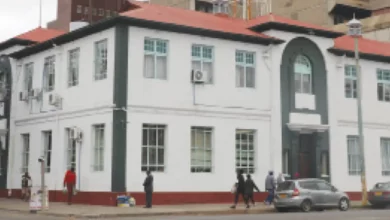Council defends ‘exorbitant’ parking fees

The Bulawayo City Council (BCC) has defended the proposed parking fees, saying the money will be used to rehabilitate the city’s poor road network.
This comes after motorists rejected what they described as exorbitant parking fees and implored the local authority to revise them downwards.
The vehicle parking management system is managed by Tendy Three Investments (TTI) who entered into a partnership with BCC in August last year after Cabinet approved the US$2.2 million vehicle parking management system deal.
However, BCC Corporate Communications Manager, Nesisa Mpofu, said the tariffs were arrived at after benchmarking with parking charges in other cities
“It should also be clarified that the appropriate parking fees which are gazetted in the different zones and have different tariffs are as follows: Zone 1 – US$1 for one or two hours (that is the prime parking). Zone 2 – US$1 per one hour (ordinary parking). Zone 3 -US$1 for two hours (low demand parking),” she said.
“Parking fees are not set by Tendy Three Investments but are the fees are set by both partners. The city would have different parkades that are available for motorists to utilise for longer parking periods.”
Previously, the local authority was previously selling parking time in advance through prepaid parking discs while the new parking fees would be effected on February 18, 2022.
Mpofu insisted the local authority did consult residents on the parking management system and income from the parking would be ring-fenced to assist in servicing the roads.
“The parking project would improve revenue collection from the current situation, create job opportunities for the residents as well as bring order and sanity in the CBD,” said the BCC Corporate Manager.
“It will allow Council to manage traffic flow within the CBD and bring convenience to the motoring public. The project also aims to provide security to the vehicles of the motorists through Closed Circuit Camera Television (CCTVs).
Mpofu added smart parking that would be introduced would also reduce car emissions in urban centres and reduce the need for people to needlessly circle city blocks searching for parking.
“Parking search traffic makes up approximately 30 percent of all traffic in urban areas—making it a major contributor to environmental pollution,” she said.





